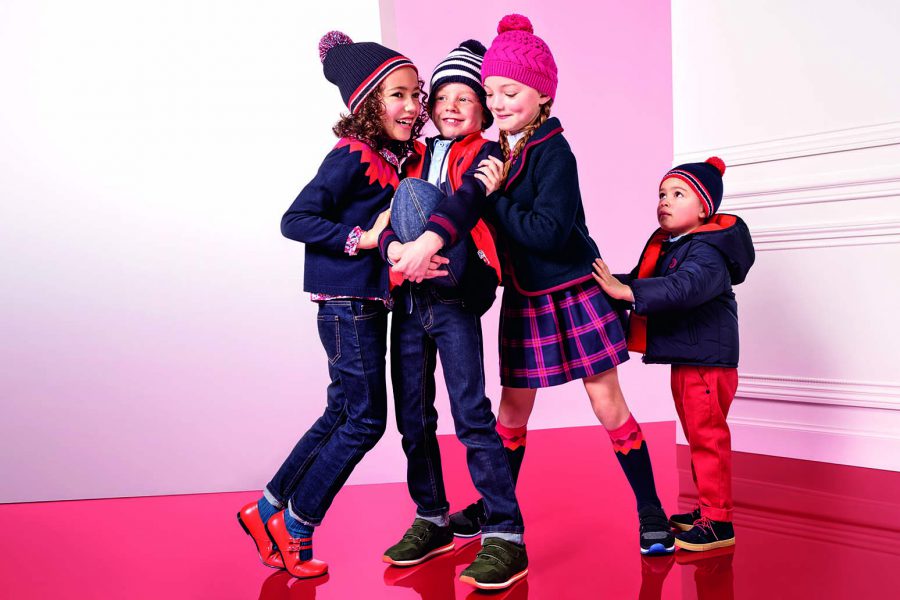Cucumber Clothing’s ‘loan to own’ model
It is an all-far too-acquainted state of affairs that suppliers who want to get out of the fast fashion cycle would like to stay clear of: consumers buy a gown, wear it to a flurry of picnics and pub outings and then, in some way, the product loses its shine. The gown languishes at the back again of a wardrobe, never ever to be worn all over again.
Eileen Willett and Nancy Zeffman, co-founders of top quality direct-to-client womenswear brand Cucumber Apparel, want to adjust this sample. They launched Cucumber Apparel in 2015, just after starting to be good friends extra than 20 years in the past, when their sons went to the same key college in north London. Willett has a background in fashion style, aiding to launch Nicole Farhi menswear in 1989, while Zeffman formerly worked for advertising agency Saatchi & Saatchi.
In response to the age-outdated predicament of people buying products and then carrying them a couple periods right before discarding them, Willett and Zeffman launched a “loan to own” scheme in August this calendar year.
Consumers can hire chosen pieces from Cucumber’s selection, with an choice to possibly send out them back again, or buy them at the finish of the demo interval. There are presently five products out there for loan to personal – shirred observe trousers for £89 a strappy prime with an in-crafted bra for £49 shirred shorts for £65 a ribbon-tie prime for £89 and a ribbon-tie jumpsuit for £125. All products are out there in navy, fawn or rasberry, in sizes ranging from XS to XL. The outfits are created with “volcanic mineral technology”, which is intended to hold the wearer’s entire body temperature at 37.5°C, aiding girls who are likely via hormonal changes at all phases of their life.

Nancy Zeffman (still left) and Eileen Willett, co-founders of Cucumber Apparel
Below loan to personal, buyers can hire the outfits for one particular or two months, right before sending them back again or paying out the last quantity to personal them. Consumers pick out two products in the selection that they would like to demo. The rental payment is a third of the retail value of each and every product for the very first thirty day period and two thirds of the retail value for two months. The shopper can send out the product back again just after the very first or second thirty day period, or if they pick out to hold the product, they pay out the last third. Cucumber pays for returns.
Consumers are welcome to wear the outfits as several periods as they want within just the very first two months, on the other hand, they are requested to clean them right before sending them back again. Objects will be accepted back again if they are returned with ordinary wear and tear, but buyers must stick to the washing directions on the label: a awesome hand or machine clean, no tumble drying and no ironing. At the time the products are returned, they will turn into out there for other buyers to buy via a new “preloved” area of the site at a discount. As the loan-to-personal scheme has just launched, there are not any preloved outfits out there to buy as but.
Willett and Zeffman imagine that renting is extra common for situation wear, but that they are trailblazing loan to personal within just the “everyday luxurious place”. Willett and Zeffman arrived up with the concept just after benefiting from consultancy information from Re-London – a partnership of the Mayor of London and the London boroughs that supports compact companies to enhance their sustainability.
Willett claims: “We’ve been wondering of methods to enhance our circularity and arrived up with this concept.” She thinks the scheme could possibly do the job in particular perfectly for people today who want to get a assortment of snug products with them on holiday break and then return them. She claims: “We’re providing them capsule wardrobe dressing. They can pick up a pair of products to include distinct situations and situations.”
Willett also thinks renting outfits gives people today the option to genuinely take into consideration anything that they order, and as a result pick out products in a extra calculated and sustainable way: “It encourages people today to imagine, what is this in fact well worth to me? Am I likely to hold it and wear it?”

Ribbon-tie jumpsuit in rasberry
In phrases of the issues, Zeffman claims it has taken a little bit of time to streamline the logistics: “Often if you’re a trailblazer, it’s the physicality of earning it do the job that can be complicated, in phrases of sending out the invoices and wanting at how the scheme must do the job in phrases of payment.”
Whilst the loan-to-personal concept is new, Cucumber has often strived for sustainability. Garments are made in a manufacturing facility in Wood Inexperienced, north London, within just a five-mile radius of Willett and Zeffman’s residences. Fabrics have crafted-in anti-microbial qualities, to attempt to decrease the need for washing. Cucumber also asks buyers to send out any outfits they no for a longer period want back again, so they can be repurposed – for illustration, as face masks, which retail at £12.
Most of Cucumber’s on-line orders occur from the Uk (all over eighty%), and the remainder occur from the US, New Zealand, South Africa, Sri Lanka, France and Ireland. As perfectly as currently being a direct-to-client brand, Cucumber Apparel is stocked in sustainable idea store Six & Sons in Amsterdam and moral fashion store Staiy in Berlin. It is sold by the 4 Seasons resort in Hampshire. Willett and Zeffman hope to roll out the brand to extra spas in the Uk in the upcoming.
In the meantime, Cucumber needs to broaden its loan-to-personal variety, as perfectly as acquiring new methods to be extra sustainable.
Zeffman claims: “We want to adjust embedded methods of browsing.”








